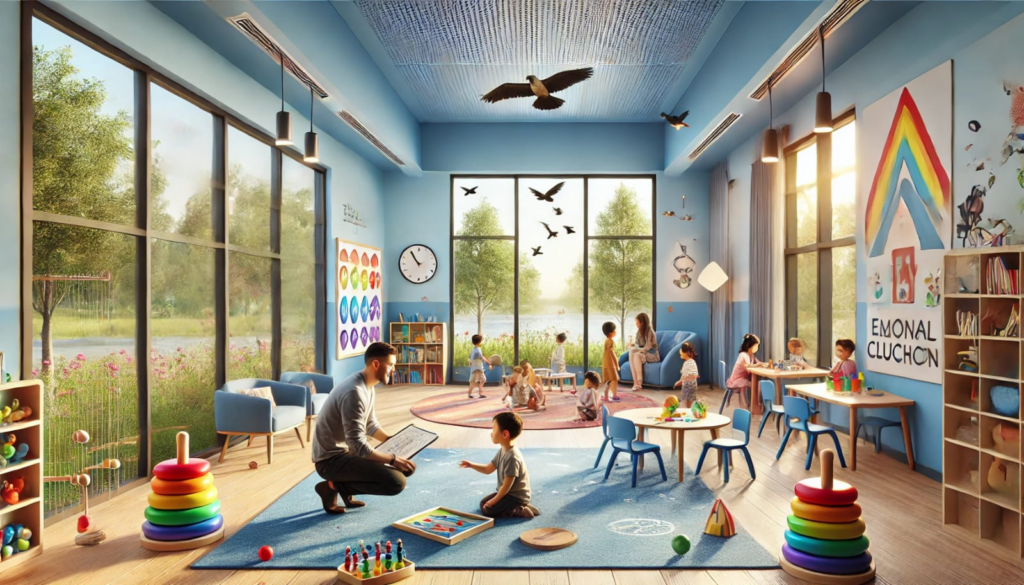PunjabiHeadline(Harmanpreet Kaur) Early childhood is a crucial stage in a child’s development, shaping their cognitive, social, and emotional well-being. Emotional intelligence, resilience, and mental health are deeply influenced by experiences in the early years. Quality early childhood education (ECE) provides children with the skills to understand emotions, form healthy relationships, and navigate challenges with confidence.
The Role of Early Childhood Education in Emotional Well-Being
1. Developing Emotional Intelligence
ECE teaches children to recognize, express, and regulate their emotions. Through structured activities and guided interactions, they learn empathy, self-control, and effective communication.
2. Building Social Skills
Early education settings provide opportunities for children to interact with peers, develop teamwork skills, and handle conflicts positively. These interactions lay the foundation for healthy relationships later in life.
3. Creating a Safe and Nurturing Environment
A supportive classroom with caring educators gives children a sense of security. When children feel safe, they are more open to exploring, learning, and expressing their emotions without fear.
4. Encouraging Resilience and Coping Skills
Life comes with challenges, and early education helps children develop problem-solving skills and resilience. Through play-based learning and emotional coaching, children learn to handle setbacks in a healthy way.
5. Enhancing Self-Esteem and Confidence
Praise, encouragement, and opportunities to make choices build self-confidence in young children. When children feel capable and valued, they are more likely to have a positive self-image.

Long-Term Benefits of Emotional Well-Being in Early Education
Better Academic Performance – Emotionally stable children concentrate better and perform well in school.
Stronger Relationships – Early social-emotional learning leads to healthier relationships in adulthood.
Reduced Mental Health Issues – Children with a strong emotional foundation are less likely to struggle with anxiety, depression, or behavioral issues later in life.
Conclusion
Investing in early childhood education is investing in a child’s emotional and psychological well-being. By fostering emotional intelligence, social skills, and resilience, we prepare children to lead happier, healthier, and more fulfilling lives. Every child deserves a strong start—because emotional well-being is just as important as academic success.
Harmanpreet Kaur
Child and Youth Care (CYCW) – CarpeDiem Foster Care Agency,Brampton, Canada
Advanced Diploma in Child and Youth Care – Humber College, Canada
Profession: Child and Youth Care (CYCW), Mental Health Advocate, and Journalist
Current Role: Sub-Editor at Punjabi Head LINE









